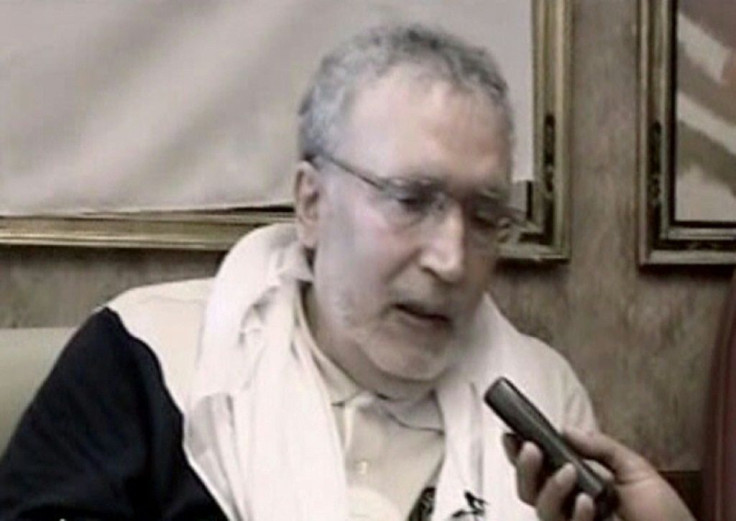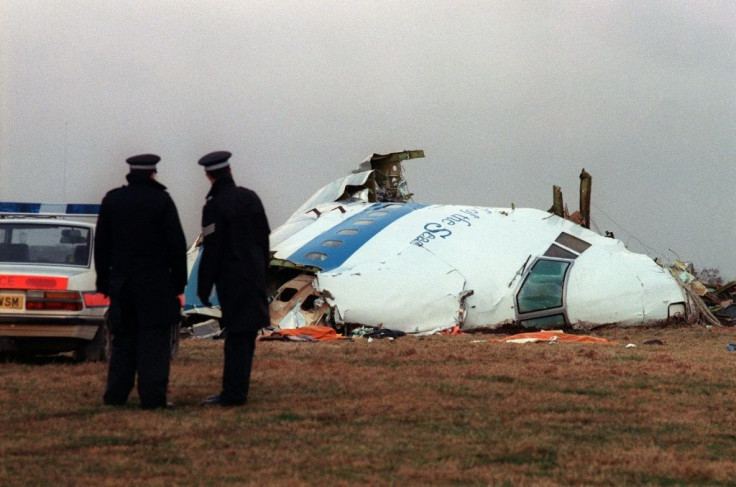Lockerbie Bomber Should Not Have Been Convicted: Legal Team
Abdelbaset Mohmet Al-Megrahi should not have been found guilty of the 1988 Lockerbie bombing, his family's legal team said on Tuesday, as a posthumous appeal began against his conviction for the attack on a Pan Am flight that killed 270 people.
The former Libyan intelligence officer was convicted of mass murder by three judges at a special Scottish court sitting in the Netherlands in 2001 and was jailed for life.
Megrahi, who denied involvement, was released from prison on health grounds in 2009 and died in Tripoli three years later aged 60.
His family won an appeal to Scotland's highest criminal court after an independent case review body said earlier this year that a miscarriage of justice may have occurred.
Central to the original prosecution case was that Megrahi was responsible for buying the brown Samsonite suitcase used to plant the bomb in the ill-fated Boeing 747's cargo hold.
But the family's lawyer Claire Mitchell said they had not proved that Megrahi was the person who bought the clothing found in the suitcase at a shop in Malta on December 7, 1988.
Nor had lawyers established beyond reasonable doubt how the suitcase came to be transferred from Malta via Frankfurt and onto the Pan Am flight from London Heathrow, she added.

As such, the evidence did not reach the required standard, she told the judges.
"It is submitted in this case that no reasonable jury, properly directed, could have returned the verdict that it did, namely the conviction of Mr Megrahi," she added.
The Scottish Criminal Cases Review Commission (SCCRC) in March referred the case to the High Court of Justiciary on the grounds that an "unreasonable verdict" was returned.
It also highlighted "non-disclosure" of evidence to Megrahi's defence team.
Pan Am Flight 103 exploded over the Scottish town of Lockerbie as it flew from London to New York on December 21, 1988, killing 270 including 11 people on the ground.
It remains Britain's worst terrorist attack.
Megrahi's family maintain there remain widespread doubts about his conviction, arguing the US and UK governments have covered up the truth about who was responsible.

"The Megrahis regard their father as the 271st victim of Lockerbie," their lawyer Aamer Anwar said before the appeal began.
"Finally there is hope that we are coming to the end of a very long journey in nearly 32 years of their struggle for truth and justice," he added.
Megrahi's first appeal was dismissed in 2002 and a second abandoned after he was diagnosed with terminal cancer.
Five judges including Scotland's most senior jurist, Lord Justice General Colin Sutherland, are hearing the case, which is due to last until Friday with a ruling at a later date.
The family's legal team are taking part remotely from Glasgow.
It has been widely claimed that the bombing was ordered by Iran and carried out by a Syrian-based Palestinian group in retaliation for a US Navy strike on an Iranian Airbus six months earlier in which 290 people died.
Late last Friday, the High Court upheld a secrecy order signed in August by UK foreign secretary Dominic Raab to withhold intelligence documents related to the case on grounds of national security.
The documents are thought to allege a Jordanian intelligence agent within the Popular Front for the Liberation of Palestine-General Command (PFLP-GC) built the bomb.
The PFLP-GC has been designated a terrorist group by several countries, including Britain and the United States.
The Megrahi family lawyers believe the documents are central to their appeal, which is backed by some of the victims' families.
They also said they would disclose "significant material about the role of individuals, nations and their politicians" at the end of the appeal.
"There can never be a time limit on justice or the truth emerging," said Anwar.
In 2008, then-foreign secretary David Miliband also refused to release the papers before Megrahi's second appeal.





















